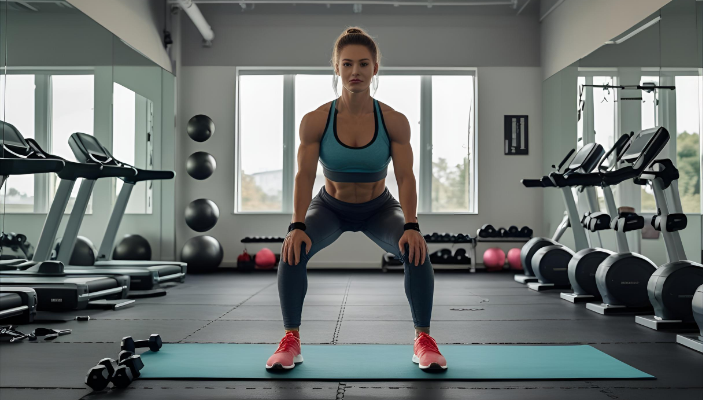In a world filled with quick fixes and generic routines, authentic fitness blogs continue to be valuable sources for personalized health, training, and lifestyle guidance. The best blogs today go beyond gym routines—they serve as real communities where readers learn, connect, and grow through a shared interest in wellness.
This article breaks down some of the most trusted fitness blogs in 2025. It also explores what makes them effective, how they support users at different fitness levels, and how you can spot high-quality content that respects your time and energy.
What Makes a Fitness Blog Worth Following?
A reliable fitness blog today should go beyond workouts or diet tips. Here’s what to look for:
1. Evidence-Based Information
Look for blogs that reference studies, credible professionals, and personal experience with context. It’s easy to say “this works”—the best blogs explain why and how something works.
2. Clarity and Consistency
Whether it’s strength training, weight loss, or stress management, consistency in the voice, tone, and message builds trust. The writing should feel conversational yet informative, with each article offering actual takeaways.
3. Inclusive and Accessible
Good blogs don’t shame bodies or push extreme routines. Instead, they cater to all—whether you’re a beginner or advanced athlete, dealing with injury, or just trying to stay active amid a busy life.
Top Fitness Blogs Making a Real Impact in 2025
These blogs combine credibility, original content, and a clear focus on helping people. Whether you’re looking for training advice, meal planning ideas, or mental health tips—they cover it all.
1. Nerd Fitness [Bodyweight, Mindset, Routines]
Why it stands out:
Nerd Fitness thrives by turning fitness into something fun, community-based, and totally relatable. From bodyweight workouts to mindset guides, it takes a lifestyle-first approach that avoids pressure and embraces progress.
Who it’s for:
Beginners, people who dislike traditional gyms, and those looking for gamified motivation.
Popular topics:
- Daily workouts for home
- Mindset tips for new habits
- Level-based fitness progression
2. Born Fitness [Simple Nutrition, Realistic Coaching]
Why it stands out:
Founded by Adam Bornstein, Born Fitness focuses on removing confusion from wellness advice. You won’t find extreme programs here—just grounded guidance from someone who’s helped millions find realistic fitness goals.
Who it’s for:
Busy people, parents, entrepreneurs—anyone who needs practical, real-life solutions.
Popular topics:
- How to build muscle after 30
- Easy meal prep strategies
- Time-efficient workout plans
3. Girls Gone Strong [Women’s Wellness and Strength]
Why it stands out:
It’s rare to find a fitness blog that speaks directly to women without gimmicks. Girls Gone Strong does exactly that, with in-depth posts on strength training, postpartum recovery, mental health, and more.
Who it’s for:
Women of all backgrounds, from athletes to new moms.
Popular topics:
- Core training post-pregnancy
- Mental health and movement
- Strength programs for every age
4. The Balanced Life [Mindful Movement + Pilates]
Why it stands out:
Robin Long’s blog, The Balanced Life, mixes gentle movement with encouragement. Pilates-focused and mindset-oriented, it offers readers a refreshing take on what “being fit” can mean.
Who it’s for:
People managing stress, injury recovery, or looking for lower-impact fitness with intention.
Popular topics:
- Daily 10-minute Pilates routines
- Simple breathwork for better focus
- Journaling and wellness prompts
5. Mind Pump Media [Fitness Education with Integrity]
Why it stands out:
Mind Pump Media blends humor with science, calling out industry myths while sharing thoughtful training advice. Their blog supports their podcast, offering deeper written content that breaks down programs and supplements.
Who it’s for:
People who want to understand why behind the how—lifters, fitness coaches, or skeptical readers.
Popular topics:
- Myths in diet culture
- How to evaluate a supplement
- Programming strength routines
Key Features of Quality Fitness Blogs in 2025
These features reflect what readers now expect from fitness content:
1. Transparent Expertise
Readers want to know who’s behind the blog. Qualified coaches, certified nutritionists, or people with lived experience are now standard. Blogs with anonymous authors or vague claims are often ignored.
2. Adaptable Approaches
Blogs that offer “one size fits all” workouts are fading out. Instead, top creators focus on adaptable frameworks that suit various body types, life stages, and lifestyles.
3. Holistic Health Focus
Fitness isn’t only about losing weight or building muscle. Blogs that integrate sleep, stress, mental wellness, and habit formation are gaining more loyal audiences.
4. Community Support
Comment sections, social groups, and challenges bring accountability. High-engagement platforms like Fit Girls Guide or Tone It Up foster community-driven success.
Common Topics Fitness Blogs Cover (And Why They Matter)
1. Home and Travel Workouts
With flexible lifestyles and remote work, there’s high demand for effective workouts using little to no equipment. These routines offer consistency regardless of schedule or location.
2. Nutrition for Energy, Not Just Aesthetics
The shift from calorie-counting to fueling energy is noticeable. Readers want practical meal ideas that improve mood, focus, and strength—not just weight goals.
3. Behavioral Change Tips
Understanding motivation, building habits, and navigating setbacks are often more valuable than reps and macros. Quality blogs integrate psychology and self-awareness.
4. Body Neutrality and Acceptance
Fitness blogs are increasingly aligned with the idea that movement should be joyful, not punishing. It’s not just about “before and after” anymore—it’s about how movement fits into life long-term.
Fitness Blogs to Avoid
Not every fitness blog is created equal. Here’s what to watch out for:
- No credentials or author info
- Extreme language (“burn fat fast,” “drop 20 lbs in a week”)
- Pop-up overload or constant product pushes
- Outdated advice or broken links
- Shaming tone or toxic body standards
A fitness blog should educate and empower—not intimidate or confuse.
Starting Your Own Fitness Blog? Here’s What Works in 2025
If you’re inspired to start your own, here’s what readers are looking for today:
1. Authenticity
Be upfront about your background, your journey, and what you’re still learning. People connect with vulnerability more than perfection.
2. Original Photos and Graphics
Stock images are everywhere. Blogs with custom visuals, real workout photos, or hand-drawn diagrams stand out and feel more relatable.
3. Readable Structure
Use bullet points, short paragraphs, bold headers, and scannable formats. People want value without fluff.
4. Consistency Without Burnout
Posting once a week with rich content is better than pushing daily half-baked posts. Readers can tell when content is rushed.
Final Thoughts
Fitness blogs in 2025 are thriving—not because of shock-value headlines or extreme transformations, but because of their people-first content. The best blogs focus on sustainable wellness, mindset growth, and practical education.
Whether you’re a reader or a writer, the best fitness content respects your time, body, and journey. It motivates through knowledge, not pressure. And in a world filled with noise, that quiet clarity is what stands out most.
FAQs
1. What is the most reliable fitness blog in 2025?
Nerd Fitness, Born Fitness, and Girls Gone Strong are some of the most reliable and well-reviewed options this year.
2. Are fitness blogs still relevant today?
Yes—especially those that provide expert-backed advice and prioritize mental and physical well-being over short-term results.
3. Can beginners follow these fitness blogs?
Absolutely. Many top blogs offer beginner-specific plans, mindset tips, and modifications to support different fitness levels.
4. How do I know if a fitness blog is trustworthy?
Check for credentials, transparency, citations, and whether the content feels respectful and well-researched.
5. What should I avoid in fitness blogs?
Avoid blogs that promote fast fixes, lack author credibility, or use shame-based language.





![Martha Stewart Style Rises in 2025 [Modern Aesthetic Trends]](https://blogss.online/wp-content/uploads/2025/07/Martha-Stewart-Style-Rises-in-2025-Modern-Aesthetic-Trends.png)

![7 AI Trends for 2025 Businesses Must Track [AI Strategy]](https://blogss.online/wp-content/uploads/2025/07/7-AI-Trends-for-2025-Businesses-Must-Track-.png)
[…] Top Fitness Blog in 2025 […]